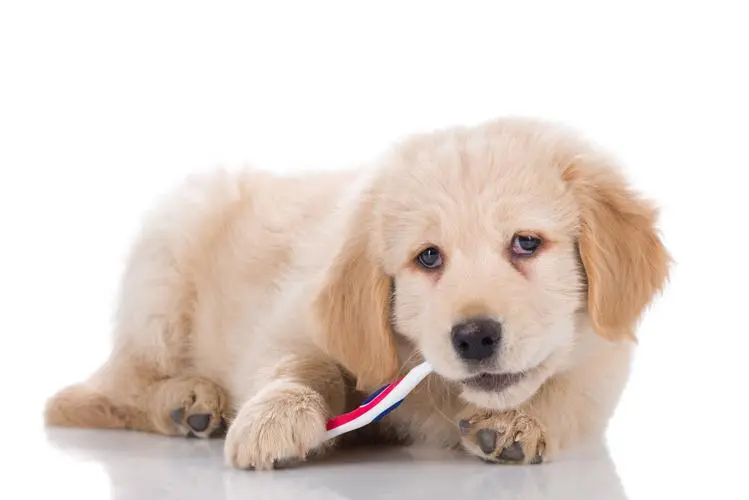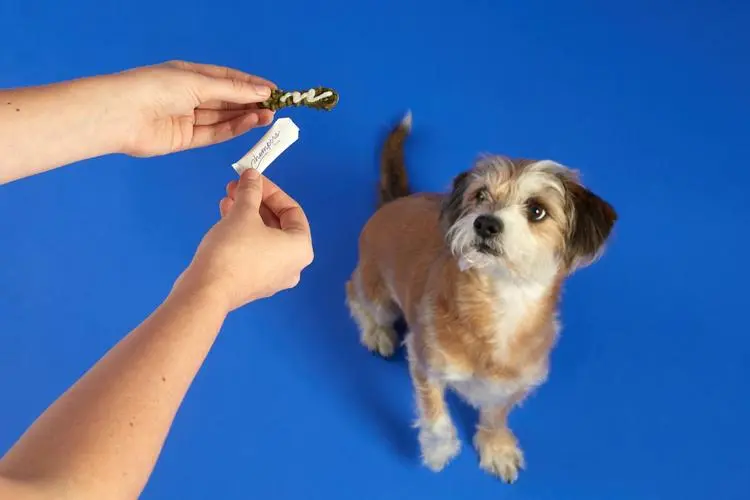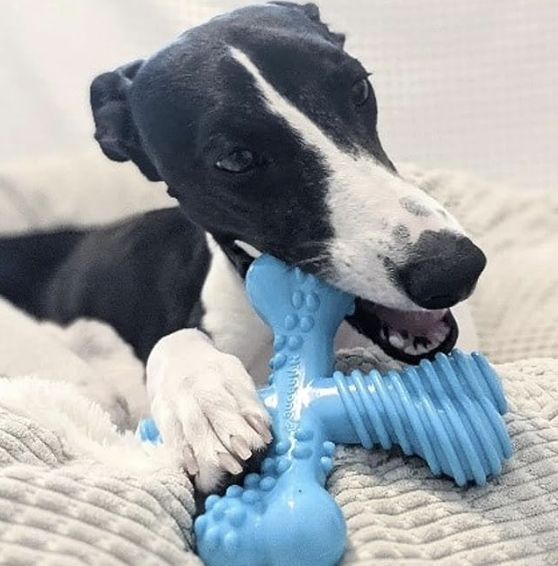
As a responsible dog owner, you want to ensure every aspect of your furry friend’s health is well taken care of. One important but often overlooked area is dental care. So, when should you start dog dental care? The answer might surprise you. In this guide, we’ll explore the best time to begin dental care for your dog, why it’s essential, and how to keep those canine chompers in top condition.
Thank you for reading this post, don't forget to subscribe!Why Dog Dental Care is Important
Dental care is a crucial part of your dog’s overall health. Poor dental hygiene can lead to plaque buildup, gum disease, and even more serious health issues like heart disease and kidney problems. Starting dental care early helps prevent these issues and ensures your dog lives a healthy and happy life.
When to Start Dog Dental Care
Puppies: The Best Time to Begin
The ideal time to start dental care for your dog is when they are still a puppy. As soon as your puppy’s baby teeth begin to emerge, typically around three to four weeks old, you can start gently cleaning their teeth. This not only keeps their teeth clean but also helps them get used to the process, making it easier as they grow older.
Key Points:
- Early Start: Begin as soon as baby teeth emerge.
- Routine Establishment: Helps create a lifelong habit.
- Ease of Adaptation: Puppies adapt to new routines more easily.
Adult Dogs: It’s Never Too Late
If you didn’t start dental care when your dog was a puppy, don’t worry. It’s never too late to start. Adult dogs can still benefit greatly from a dental care routine. You might need to be more patient as they adjust, but with time and consistency, you can establish a healthy dental care regimen.
Key Points:
- Patience and Consistency: Be patient as adult dogs adapt.
- Regular Check-ups: Important for monitoring dental health.
- Professional Cleanings: Consider periodic professional dental cleanings.
How to Start Dog Dental Care
Choosing the Right Tools
To start, you’ll need some basic tools. These include a dog-specific toothbrush and toothpaste. Human toothpaste isn’t safe for dogs, as it contains ingredients that can be harmful if swallowed.
Key Tools:
- Dog Toothbrush: Specially designed for dogs.
- Dog Toothpaste: Safe and usually flavored to appeal to dogs.
Steps to Brush Your Dog’s Teeth
- Get Comfortable: Make sure your dog is comfortable and calm.
- Introduce the Toothbrush: Let your dog sniff and lick the toothbrush to get used to it.
- Apply Toothpaste: Put a small amount of dog toothpaste on the brush.
- Start Brushing: Gently lift your dog’s lip and brush in small, circular motions.
- Praise and Reward: Always praise your dog and give them a treat afterward.

Frequency of Brushing
Ideally, you should brush your dog’s teeth daily. However, if this isn’t feasible, aim for at least a few times a week. The more often you brush, the better the results.
Personal Anecdote
I remember when I first started dental care for my Golden Retriever, Bella. I had read about the importance of dental health but didn’t know exactly when to start or how to go about it. When Bella was just a few months old, I decided to give it a try. I interviewed my friend Sarah, a vet technician, to get some tips. Sarah shared, “Start as early as possible. Puppies adapt quickly, and it becomes a normal part of their routine.” Following her advice, I introduced Bella to her toothbrush and toothpaste when she was around four months old. At first, she was curious and a bit hesitant, but with some patience and lots of treats, Bella soon started looking forward to our brushing sessions. Today, she has healthy teeth and a sparkling smile, and I’m grateful I started early.
Other Dental Care Tips
Dental Chews and Toys
In addition to brushing, dental chews and toys can help keep your dog’s teeth clean. These products are designed to reduce plaque and tartar buildup while satisfying your dog’s natural chewing instincts.
Nylabone Extreme Tough Dog Chew Toy
This dog toy is designed for extreme chewers, with dogs weighing up to 23 kg! The toy is durable, and beef flavoured to urge your dog to chew and reduce destructive behaviours. Additionally, the design has tiny bristles which help clean your dog’s teeth! The product has 8,000 reviews at an average of 4.4 stars, with the reviews praising the product for being indestructible.
Benefits of Dental Chews and Toys:
- Plaque Reduction: Helps reduce plaque and tartar.
- Entertainment: Keeps your dog entertained and mentally stimulated.
- Healthy Habit: Encourages good chewing habits.
Regular Vet Check-ups
Regular veterinary check-ups are crucial for maintaining your dog’s dental health. Your vet can perform professional cleanings and check for any signs of dental disease.
Importance of Vet Check-ups:
- Professional Cleanings: Removes plaque and tartar that brushing can’t.
- Early Detection: Identifies dental issues before they become severe.
- Expert Advice: Provides guidance on maintaining dental health at home.
Signs of Dental Problems
Being aware of the signs of dental problems can help you catch issues early and seek veterinary care promptly.
Common Signs of Dental Problems:
- Bad Breath: Persistent bad breath can indicate dental issues.
- Discolored Teeth: Yellow or brown teeth may have plaque buildup.
- Swollen Gums: Red or swollen gums can be a sign of gum disease.
- Difficulty Eating: Reluctance to eat or chew can indicate pain.
Conclusion
Starting dog dental care early is essential for your pet’s long-term health. Whether you begin when they’re a puppy or start later in their life, regular dental care can prevent serious health issues and keep your dog happy and healthy. Remember to choose the right tools, be consistent, and include dental chews and regular vet check-ups in your routine. By investing time in your dog’s dental care, you’re ensuring they enjoy a lifetime of good health and bright smiles.
Investing in your dog’s dental health is investing in their overall well-being. So, when should you start dog dental care? The answer is simple: as soon as possible!

